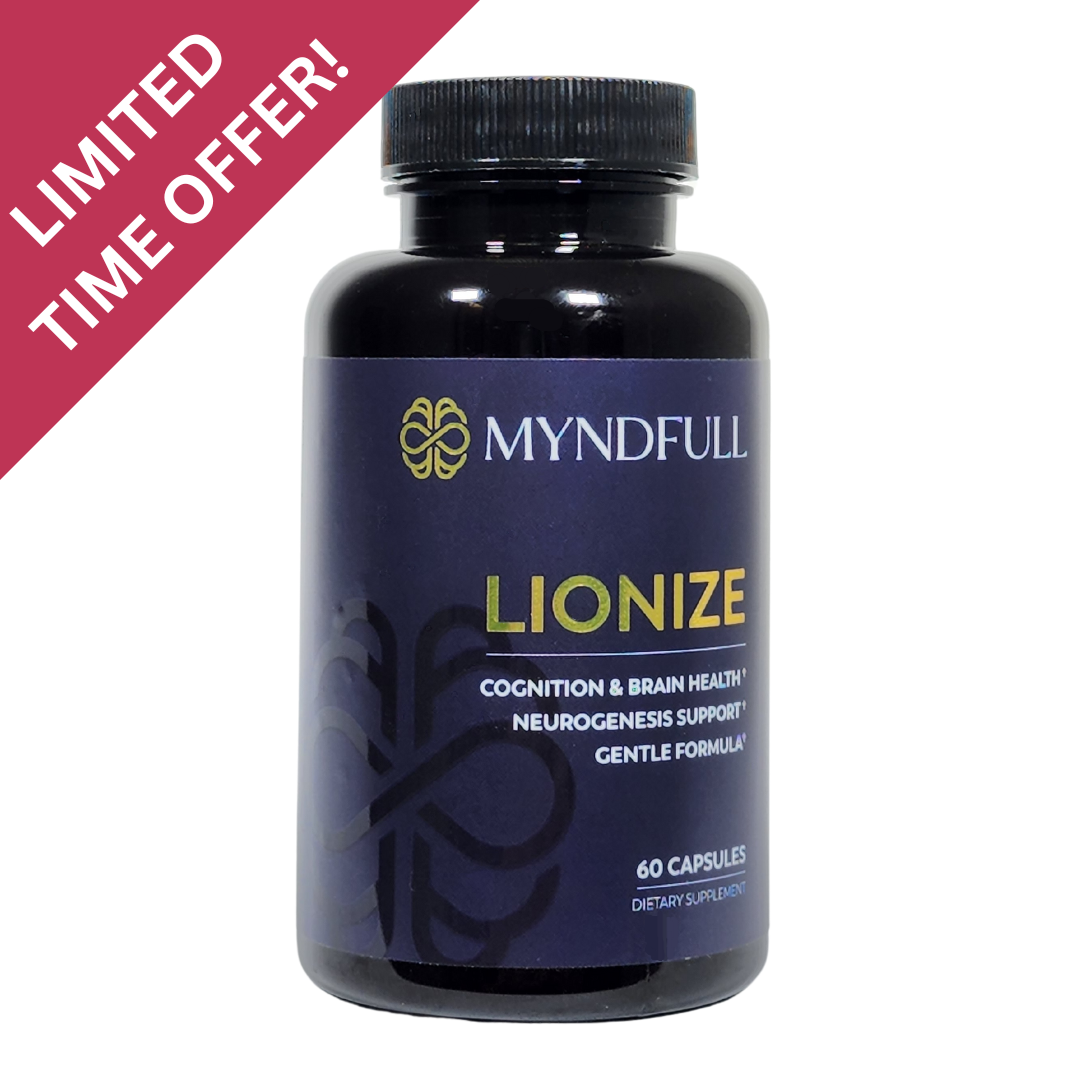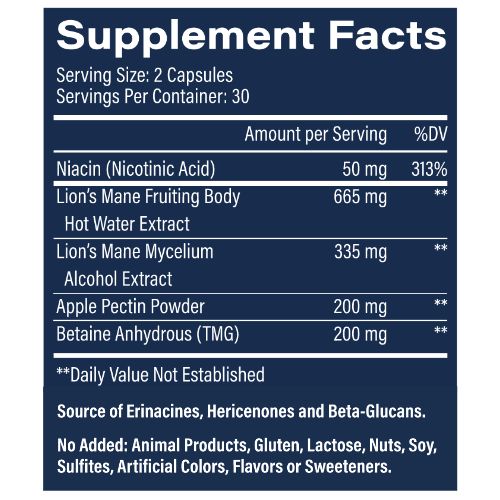Microdosing has gained popularity as a practice for cognitive enhancement, emotional well-being, and personal growth. As the community of microdosers grows, so does the knowledge about how to optimize the experience. One emerging trend in this space is the use of complementary nutritional supplements as part of microdosing regimes–a practice known as stacking. This article will specifically explore what Betaine (aka TMG) is, its potential benefits, and how it can be integrated into your microdosing routine.
What is Betaine?
Betaine anhydrous, often called simply "betaine" is also known as TMG (short for trimethylglycine). It's an amino acid derivative that occurs naturally in plants, particularly in sugar beets, which give it its name. Betaine supports several critical biological processes, most notably as a methyl donor in the body's methylation cycle and maintaining cellular homeostasis.
Reasons People Supplement Betaine (aka TMG) in General
Research suggests that betaine anhydrous supplementation may offer several health benefits:
- Liver Health: Betaine can help protect the liver from fatty deposits and may improve liver function in people with non-alcoholic fatty liver disease (Kathirvel et al., 2010).
- Heart Health: By lowering homocysteine levels, betaine may reduce the risk of cardiovascular diseases (Ashtary-Larky et al., 2021).
- Athletic Performance: Some studies indicate that betaine can enhance power output and muscle endurance during high-intensity exercise (Ismaeel, 2017).
- Digestive Health: TMG may help protect the digestive tract lining and support overall gut health.
- Mood and Cognitive Function: By supporting methylation and neurotransmitter production, betaine might positively impact mood and cognitive performance (Di Pierro & Settembre, 2015).
- Cell Homeostasis: TMG is an osmolyte, meaning it helps control the amount of water in cells, especially during times of fluctuating conditions like intensive training.
- Methylation Support: As a methyl donor, betaine supports various bodily functions, including DNA methylation and neurotransmitter synthesis (Obeid, 2013).
The Importance of Methylation
To understand why betaine is gaining attention in the psychedelic microdosing community, it helps to understand the role of methylation in the body, especially when combined with other common microdosing stack components like niacin.
Each molecule of betaine includes three methyl groups (the "methyl" part of trimethylglycine). A methyl group is a versatile grouping of a carbon atom and three hydrogen atoms that can be attached to other molecules to change the way they act or are treated in the body–a process called methylation.
Methylation processes fill several crucial roles. Sometimes it acts as a builder. Some building/repair functions include:
- Gene expression
- Neurotransmitter synthesis (including serotonin, dopamine, and melatonin)
- DNA repair
Methylation is also a method of processing substances in the body for detoxification and elimination. One particularly relevant example of a substance that is eliminated via methylation is niacin...more on that later.
When the body has to use methyl groups for “clean-up” more often, it could deplete its supply, which in turn could potentially interfere with these important processes.
A note on MTHFR gene mutation: MTHFR (Methylenetetrahydrofolate reductase) is a regulatory enzyme that is normally produced in the human body to fuel methylation.
In recent years, scientists have discovered that about 40% of the population has a gene mutation that may restrict MTHFR production and make methylation more challenging for their bodies. More research is needed, but for these individuals, it may be even more important to monitor the health of their methylation cycle.
How Betaine (TMG) Supports Microdosing
Niacin (Vitamin B3) is a popular addition to microdosing support stacks, particularly in the famous Stamets Stack. It's valued for its potential to enhance blood flow and promote neuroplasticity. However, as it is one of those substances that is eliminated from the body via methylation, high doses of niacin could have an unintended side effect on the body's methylation processes.
This is where Betaine comes into play. As a ready donor, TMG can help replenish the methyl groups that may be depleted by ongoing high-dose niacin use. By doing so, it helps ensure that other critical methylation-dependent processes in the body continue unimpeded.
Although plain niacin is more commonly recommended in microdose stacks, some people choose to use non-flush variations. The burden of supporting methylation when using non-flush niacin is even more important (Sun et al., 2017).
Beyond its protective role when paired with niacin, other potential benefits of including betaine in your microdosing stack include:
- Supporting neurotransmitter synthesis: By ensuring adequate methyl groups are available, betaine may help maintain optimal production of important neurotransmitters like serotonin and dopamine.
- Promoting detoxification: Niacin is just one one of the compounds in which methylation plays a role in the body’s clean-up processes. By providing methyl groups, betaine can help support the body's ability to eliminate toxins.
- Cardiovascular support: betaine has been shown to help reduce homocysteine levels, which is associated with improved cardiovascular health.
- Liver protection: Some studies suggest that betaine may have hepatoprotective properties, which could be beneficial for those concerned about potential liver stress.
How to Incorporate Betaine (TMG) into Your Microdosing Stack
If you're considering adding betaine to your microdosing routine, here are some guidelines:
- Dosage: A typical dose of betaine ranges from 200mg to 3000mg per day. For healthy people primarily interested in supporting methylation, a lower dose is sufficient. Regardless of goals, it’s a good idea to start lower and gradually increase.
- Timing: Betaine can be taken with your regular microdose, or separately if you prefer. For large doses, some users report taking it in divided doses throughout the day.
- Stack composition: Betaine can be added to various microdosing stacks, but it's particularly synergistic with stacks that include niacin. Because of this, betaine is sometimes included in specialty microdosing support supplements.
- Duration: Betaine is generally considered safe for long-term use.
Precautions and Considerations
While betaine is generally well-tolerated, there are some considerations to keep in mind:
- Individual response: As with any supplement, individual responses can vary. Start with a lower dose and monitor your body's response.
- Interactions: Betaine may interact with certain medications. If you're on any prescription drugs, consult with a healthcare provider before adding betaine to your stack.
- Existing conditions: If you have any pre-existing health conditions, particularly related to the liver or kidneys, consult a healthcare provider before use.
- Quality matters: Choose a high-quality betaine supplement from a reputable source.
Conclusion
Betaine (TMG) represents the growing sophistication of the world of microdosing stacks. By supporting the body's methylation processes, it has the potential to enhance the benefits of other stack components while mitigating potential drawbacks.
As always, the key to successful microdosing lies in careful experimentation, self-awareness, and a commitment to overall health and well-being.
Remember, while microdosing and supplementation can be powerful tools for personal growth and wellness, they're most effective when combined with a healthy lifestyle, including proper nutrition, regular exercise, and mindfulness practices. As you explore the potential of betaine in your microdosing journey, stay curious, be safe, and listen to your body.
FAQs
What is microdosing? Microdosing is the consumption of small, sub-hallucinogenic doses of psychedelic substances to treat physical or psychological problems or enhance normal functioning without causing a traditional psychedelic trip.
Are TMG and Betaine the same thing? Yes, they are the same substance. TMG is a reference to its chemical name, trimethylglycinate. Betaine is a common term that derived from a common source: beets!
What is methylation? Methylation is a chemical reaction where a carbon atom and three hydrogen atoms are attached to another molecule, often changing the way that molecule behaves or is treated in the system it inhabits.
What is Betaine/TMGs most common use in microdose support stacking? In a microdose stacking context, betaine is most commonly used as a supplemental donor of methyl groups for systemic health, particularly accompanying high-dose niacin use.
Sources:
Ashtary-Larky, D., Bagheri, R., Ghanavati, M., Asbaghi, O., Tinsley, G. M., Mombaini, D., Kooti, W., Kashkooli, S., & Wong, A. (2021). Effects of betaine supplementation on cardiovascular markers: A systematic review and Meta-analysis. Critical Reviews in Food Science and Nutrition, 1–18. https://doi.org/10.1080/10408398.2021.1902938
Di Pierro, F., & Settembre, R. (2015). Preliminary results of a randomized controlled trial carried out with a fixed combination of S-adenosyl-L-methionine and betaine versus amitriptyline in patients with mild depression. International Journal of General Medicine, 73. https://doi.org/10.2147/ijgm.s79518
Ismaeel, A. (2017). Effects of Betaine Supplementation on Muscle Strength and Power. Journal of Strength and Conditioning Research, 31(8), 2338–2346. https://doi.org/10.1519/jsc.0000000000001959
Kathirvel, E., Morgan, K., Nandgiri, G., Sandoval, B. C., Caudill, M. A., Bottiglieri, T., French, S. W., & Morgan, T. R. (2010). Betaine improves nonalcoholic fatty liver and associated hepatic insulin resistance: a potential mechanism for hepatoprotection by betaine. American Journal of Physiology-Gastrointestinal and Liver Physiology, 299(5), G1068–G1077. https://doi.org/10.1152/ajpgi.00249.2010
Obeid, R. (2013). The Metabolic Burden of Methyl Donor Deficiency with Focus on the Betaine Homocysteine Methyltransferase Pathway. Nutrients, 5(9), 3481–3495. https://doi.org/10.3390/nu5093481
Sun, W.-P., Zhai, M.-Z., Li, D., Zhou, Y., Chen, N.-N., Guo, M., & Zhou, S.-S. (2017). Comparison of the effects of nicotinic acid and nicotinamide degradation on plasma betaine and choline levels. Clinical Nutrition, 36(4), 1136–1142. https://doi.org/10.1016/j.clnu.2016.07.016








